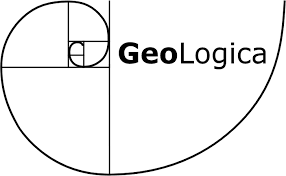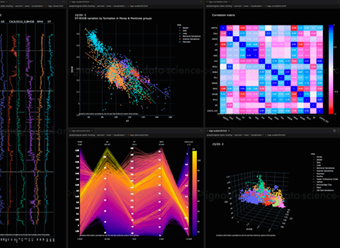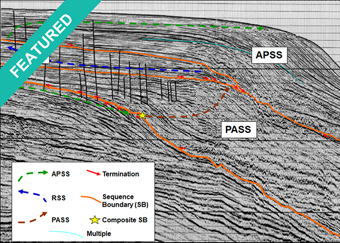
Geologic Carbon Storage for Geoscientists and Engineers

Date: 25 - 29 Sep 2023
Location: Online
Tutors: Alex Bump, Research Scientist Associate at Bureau of Economic Geology / Seyyed Hosseini, Senior Research Scientist Associate at Bureau of Economic Geology / Katherine Romanak, Research Scientist Associate at Bureau of Economic Geology
This course empowers attendees to develop and apply their skills to the growing industry of Carbon Capture Utilisation and Storage (CCUS). Attendees will be guided through the lifecycle of a CCUS project with an emphasis on key concepts, processes and workflows of the CCUS industry. Focus will be on developing the geoscience and engineering skills needed to progress a project.
You will learn to:
- Outline the regulatory, policy and financial drivers and constraints for CCUS.
- Describe the subsurface requirements for a successful storage project, including similarities and differences with oil and gas exploration.
- Understand the workflow and perform the key tasks for defining, developing and permitting a CCUS project, including site selection, characterisation, risk assessment and monitoring for operational and post-operational phases.
- Apply your subsurface knowledge and skills in oil and gas development to the concepts, processes and workflows of the CCUS industry.
- Estimate CO2 storage capacity in saline aquifers at reservoir and basin-scales.
Essential Data Science for Subsurface Geoscientists and Engineers

Date: 02 - 06 Oct 2023
Location: Online
Tutor: David Psaila, Analytic Signal Limited
Interest in data science and machine learning is rapidly expanding, offering the promise of increased efficiency in E&P, and holding the potential to analyse and extract value from vast amounts of under-utilised legacy data. Combined with petroleum geoscience and engineering domain knowledge, the key elements underlying the successful application of the technology are: data, code, and algorithms. This course builds on public datasets, code examples written in Python, statistical graphics, and algorithms from popular data science packages to provide a practical introduction to the subject and its application in the E&P domain.
You will learn to:
- Analyse project data using the data science toolkit; notebooks, visualization, and communication.
- Perform data import and manipulation, data visualization, exploratory data analysis, and building predictive models from data.
- Have a working knowledge of coding in Python.
- Coordinate reference systems including geographic and projected coordinate systems.
- Use the fundamentals of machine learning including background concepts, the different types of machine learning, and the basic workflow to build and evaluate models from data.
Subsurface Context for a GeoEnergy Transition

Date: 16 - 20 Oct 2023
Time: Five 3.5-hour interactive online sessions (mornings in North America and afternoons in Europe).
Location: Online
Tutors:
- Convenor: Alistair Donohew: Director, Kovia Consulting Ltd.
- Climate: John Pyle: Professor of Atmospheric Chemistry, University of Cambridge.
- CCS: Richard Worden: Professor in the Department of Earth Ocean and Ecological Sciences, University of Liverpool, UK.
- Geothermal: Mark Ireland: Lectuer in Energy Geoscience, Newcastle University.
- Critical Minerals: Lucy Crane: Seniror Geologist, Cornish Lithium Ltd.
- Socio-economic: Mark Hammond: Visiting Professor in Public Policy, Canterbury Christ Church University.
A course summarising the key issues of the GeoEnergy Transition, including climate science, carbon capture and storage, geothermal, critical minerals and the associated socio-economic context and challenges.
You will learn to:
- Describe the principles of climate science in relation to climate change.
- Evaluate the roles of the various greenhouses gases.
- Appraise future projections of the Earth’s climate.
- Develop awareness of what is involved in Carbon Capture and Storage (CCS), how it will affect carbon dioxide emission reductions and what has been done so far.
- Understand the mass of carbon dioxide to be disposed of and how much rock volume must be accessed in the subsurface for carbon dioxide storage.
- Appreciate the range of ways that carbon dioxide could leak from the planned storage sites and the range of monitoring strategies that could be employed to ensure safe and long-term storage of carbon dioxide.
- Understand the applications and use of geothermal energy.
- Describe the key characteristics of geothermal resources and reservoirs.
- Understand project risks and uncertainties in developing geothermal resources.
- Understand the wider context behind the mineral intensity of the energy transition.
- Describe how new technologies are ‘unlocking’ mineral deposits which have previously been considered unconventional.
- Understand the role mineral extraction has to play in delivering the UN sustainable development goals, alongside various industry operating codes and principles.
- Appreciate how energy transition projects are funded and how investment decisions are made.
- Evaluate the policy and planning constraints on energy transition projects and how these can be successfully overcome.
- Review the key risks, economic, political and technological, which successful projects need to address.
Predictive Sequence Stratigraphy

Date: 23 - 26 Oct 2023
Location: Houston
Tutor: Vitor Abreu: President, ACT-Geoscience; Adjunct Professor, Rice University
The application of sequence stratigraphy allows for the geologic interpretation of core, well log, seismic and outcrop data to predict play elements, presence and quality before drilling. This course introduces sequence stratigraphy and presents workflows to describe, correlate and map strata. The terminology of surfaces, systems tracts, sequence sets and stratigraphic hierarchy will be described and then applied to subsurface data exercises in non-marine, shallow marine and deep marine depositional settings. The emphasis will be on the recognition and mapping of play elements from exploration to production scales.
You will learn to:
- Apply the basic terminology of sequence stratigraphy.
- Contrast the various approaches to sequence stratigraphy.
- Apply the concept of facies, facies stacking and shoreline trajectory to define parasequences, surfaces and system tracts.
- Evaluate main controls on depositional sequences in non-marine, shallow marine and deep marine environments.
- Assess and interpret cores, well logs and seismic lines to characterize and map hydrocarbon play elements in different settings.
- Implement sequence stratigraphic methods to predict play element presence and quality on seismic data.
- Describe the Accommodation Succession Method and Sequence Stratigraphy Hierarchy.
- Apply chronostratigraphic techniques.
Hydrogen Masterclass: Production, Geological Storage and Operational Engineering

Date: 23 - 27 Oct 2023
Location: Online
Tutor: Katriona Edlmann: Chancellor’s Fellow in Energy, The University of Edinburgh
Future energy scenarios foresee a prominent and growing role for hydrogen. Demand is likely to rapidly exceed the capacity of typical above ground energy storage technologies, necessitating the need for the geological storage of hydrogen in engineered hard rock caverns, solution mined salt caverns, depleted gas fields and saline aquifers. This course will firstly provide participants with an overview of the current hydrogen landscape, including its likely role in the energy transition, production and economic challenges. The course will then focus on the need for geological storage, introducing the geological storage options available for the secure storage and withdrawal of hydrogen from these different geological stores. The main body of the course will then explore the key considerations involved in geological hydrogen storage including hydrogen flow processes and thermodynamics; geomechanical responses to rapid injection and withdrawal cycles; geochemical and microbial interactions during storage and the operational considerations and monitoring of hydrogen storage sites that may impact storage integrity, withdrawal rates and hydrogen purity.
You will learn to:
- Appreciate the role of geoscience in the hydrogen economy and the contribution hydrogen can make to the energy transition in support of net zero emission targets.
- Describe the different processes involved with hydrogen production and the associated lifecycle carbon intensity of this production.
- Recall details of the developing hydrogen supply chains including infrastructure considerations, distribution networks and pathways for market growth.
- Describe the different geological storage options available and their capacity and spatial constraints.
- Understand hydrogen as a fluid in the subsurface including its thermodynamic and transport properties.
- Characterise the geomechanical considerations for storage integrity and associated risks including caprock sealing considerations.
- Appreciate the impact of geochemical and microbial interactions in subsurface hydrogen stores and the relevant monitoring and management tools.
- Describe the operational engineering considerations and monitoring of hydrogen storage sites.
Introduction to Clastic Facies

Date: 30 Oct - 02 Nov 2023
Location: Online
Tutor: Howard Feldman: Consulting Geologist and Affiliate faculty, Colorado State University
This course provides an introduction to siliciclastic facies in all aqueous settings focusing on sand deposition for application to conventional reservoirs. The course begins with an overview of sedimentary structures and their recognition in outcrop and core. Observations of sedimentary structures and facies stacking patterns are then used to interpret depositional environments and make predictions about sand body geometry, size, and compartmentalization. The course makes extensive use of large-format (50% scale) core photos and outcrop photopans from a wide range of environments. Subsurface data sets including seismic and well logs are used to illustrate application of these concepts to subsurface mapping. We will also cover an introduction to core description workflows.
You will learn to:
- Interpret basic depositional models of siliciclastic systems with a focus on sandy facies, and prediction away from control at a range of scales.
- Collect basic observations from core that can be used to constrain depositional models.
- Integrate cores, well logs, and seismic in order to make predictions about the distribution of reservoir, source, and seal.
- Interpret genetic stratigraphic units in core, well logs, and seismic.
Engineering of Resource Plays for Technical Professionals

This course presents the terminology, methodology and concepts of drilling, completion and reservoir engineering as applied to unconventional resource plays, including oil-rich shales, gas shales and coal-seam gas. It will cover the latest practices as well as discuss future directions in unconventional resource engineering. Case studies are used to illustrate particular challenges presented by these plays. The environmental impacts on air and water resources are considered.
Participants will learn to become more effective members of multi-disciplinary resource evaluation teams by developing a solid understanding of appropriate engineering concepts and terminology.
The manual will be provided in digital format and you will be required to bring a laptop or tablet computer to the course.
You will learn to:
- Discuss aspects of reservoir, drilling, completion and stimulation engineering with engineering members of unconventional project teams.
- Contrast engineering approaches to conventional and unconventional projects.
- Assess resource estimates, production forecasts and economic evaluations for unconventional plays.
- Review the sampling procedures adopted by reservoir engineers.
- Predict the hydrocarbon phase change in reservoirs.
- Assess the demand for and disposal of water associated with fracturing and producing unconventional reservoirs.
- Assess the impact of unconventional projects on air quality.
- Discuss recent advances in the optimization of resource plays.
KeyFacts Energy Industry Directory: GeoLogica l KeyFacts Energy news: Training
 KEYFACT Energy
KEYFACT Energy